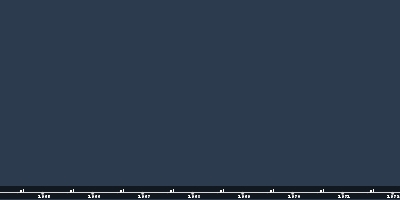1 gen 1972 anni - Nixon visits China
Descrizione:
detente: The easing of conflict between the United States and the Soviet Union during the Nixon administration, which was achieved by focusing on issues of common concern, such as arms control and trade.As protests continued at home, Nixon pursued his goal of “peace with honor.” Negotiations to end the war had begun in Paris in May of 1968, when Johnson was still president. With both sides avoiding agreements that looked like defeat, and each accusing the other of negotiating in bad faith, the Paris peace talks dragged on for years, as the war grew even bloodier. Nixon knew, however, that a U.S. military victory was unlikely and that the Paris talks represented the surest route to an American exit.
Nixon wanted not just “peace” but also “honor,” which meant ending the war on terms favorable to the United States. He hoped to achieve those favorable terms via both diplomacy and a shift in military tactics. First, he sought détente (a lessening of tensions) with the Soviet Union and a new openness with China. Nixon reasoned that by thawing relations with these two communist adversaries, which supported North Vietnam against the U.S.-backed South, he could strike a better deal at the ongoing peace talks in Paris. In a series of meetings between 1970 and 1972, Nixon and Soviet premier Leonid Brezhnev resolved tensions over Cuba and Berlin and signed the first Strategic Arms Limitation Treaty (SALT I), the latter a symbolic step toward ending the Cold War arms race. Nixon was heavily influenced by his national security advisor, the Harvard professor Henry Kissinger, who regarded the Soviet Union not as an ideological foe to be resisted at every turn but as a traditional geopolitical rival with whom compromises were possible. Taking Kissinger’s advice, Nixon sought to break the impasse that long kept the United States from any productive relationship with the Soviet Union.
Nixon took the same approach to China, and in 1972 became the first sitting U.S. president to visit that country. In a weeklong trip heavily covered by the press, the president pledged that the two nations — one capitalist, the other communist — could peacefully coexist. This was the same Nixon who had risen to prominence in the 1950s by railing against the Democrats for “losing” China and by hounding Communists and fellow travelers in the United States. Indeed, the president’s impeccable anticommunist credentials gave him the political cover to travel to Beijing. Praised for his efforts to lessen Cold War tensions, Nixon also had tactical objectives in mind: he needed to end the war in Vietnam without appearing to lose it, and he hoped that better relations with the Soviet Union and China would aid in this objective.
American officials conferring with a Chinese foreign minister on their way to Beijing, China, in 1972 with President Nixon. Henry Kissinger, Nixon’s national security advisor, is seated second from left. On this trip, Nixon became the first sitting president to visit mainland China, part of a larger easing of tensions between the United States and the major communist powers — the Soviet Union and China — in the early 1970s
Aggiunto al nastro di tempo:
Data:
1 gen 1972 anni
Adesso
~ 53 years ago
